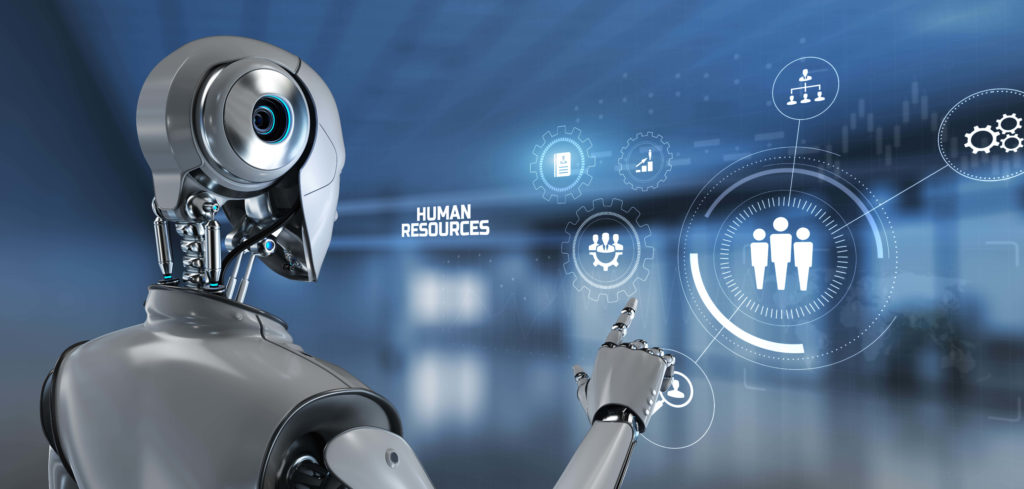‘The future of work is digital’
This is a statement we have all seen over and over again in the past few years. But what does it actually mean and how does it relate to you in your organisation? This blog concentrates on automation within Human Resources. A department notoriously bogged down by mundane, repetitive tasks, under pressure to perform, and seen as a cost centre to the business.
So how can automation help?
Automation, be it process transformation or process automation, helps relieve the pain points in HR and makes more time for the team to utilise their ‘human skills’ in areas such as negotiation, communication, critical problem solving and innovative thinking.
A study that surveys 500 Chief Human Resources Officers showed a common thread that thinks that improving employee experience increases an organisation’s success in winning the ’War for Talent.’
Superior talent has a huge impact on an organisation, especially as a productivity kicker. A study from the McKinsey report of over 600,000 researchers, politicians, entertainers and athletes found that high performers are 400% more productive than average ones. A further study in business reveals that the more complex information/interaction-intensive work of managers, software developers etc can result in high performers being 800% more productive!
Millennials and post-millennials now make up the largest proportion of the working population. This is set to increase to 75% of the workforce by 2025. These groups have grown up being immersed in useful and usable technology. To attract the best of the best, companies will need to embrace digitalisation. But having functional digitalisation is only half the story. For a workplace to be human-centric and provide a good employee experience, companies need to minimise the boring repetitive tasks and use employee’s time for jobs that need human skills!
So which tasks are good for automation?
Employee Verification
Checking academic, employment and criminal records. A use case of an Human Resources service employer showed the following automation :
- 50% of academic checks – automated
- 30% Employment Checks – automated
- 40% of Criminal record checks – automated
All of these were implemented over an 8 week period and reached an ROI within 8 months.
Overall case studies within Human Resources have shown results such as employee onboarding – 10 times faster following automation, and a 4 month ROI on payroll automation.
Human Resources Management Systems
Artificial intelligence also has a place within these digitalised processes. In a demo of an RPA robot, it collects applications for a Data Scientist position from an Human Resources Management System. It logs in, downloads and saves the CV, scans it using OCR technology for a match to the job specification. It will then give the application a ‘confidence score’. If this falls below the expected level than the robot selects rejected as a status and completes the notes section showing ‘robot checked’ and the inputs the confidence score. It will then go on to the next application and repeat the process. If the application matches, it updates the status to shortlisted and completes the notes with ‘robot checked’ and confidence score.
On an occasion where it finds a ‘close match’, for instance, there are some elements of the CV that show relevant experience, it will stop running and produce a popup window asking for the operator’s help. The operator can then review the CV and decide whether it should be shortlisted by answering the question the robots asks. By doing this the robot learns from these actions and applies it’s new ‘knowledge’ to future checks.
There are many other areas where scaling RPA can be introduced to the Human Resources department
- Sick, leave, and holiday requests
- Expenses; checking, submitting, recording and reimbursement
- Employee onboarding/offboarding
What can you gain from automation?
By automating these time-consuming process team members get time to spend in more human-centric tasks.
- Recruitment; spending less time on searching and more time on meeting qualified candidates, attending talent scouting events etc
- Wellbeing; focus on new initiatives rather than the administering of the current wellness programs
- Employee relations; having a proactive approach rather than investigating issues that have occurred
- Business Events; being able to attend business unique events, develop HR centric learning and networking
- Reskilling- being able to focus on re-skilling the current and new workforce with the new digital processes and maybe even starting a centre of excellence in RPA to roll our organisation wide!
If you would like to find out more about our RPA approach or end to end process transformation within your Human Resources department, please get in touch. We are experts in the field of digitalisation and would love a chat with you about how we can help you make your Human Resources department a more interesting, human centric place to work!





